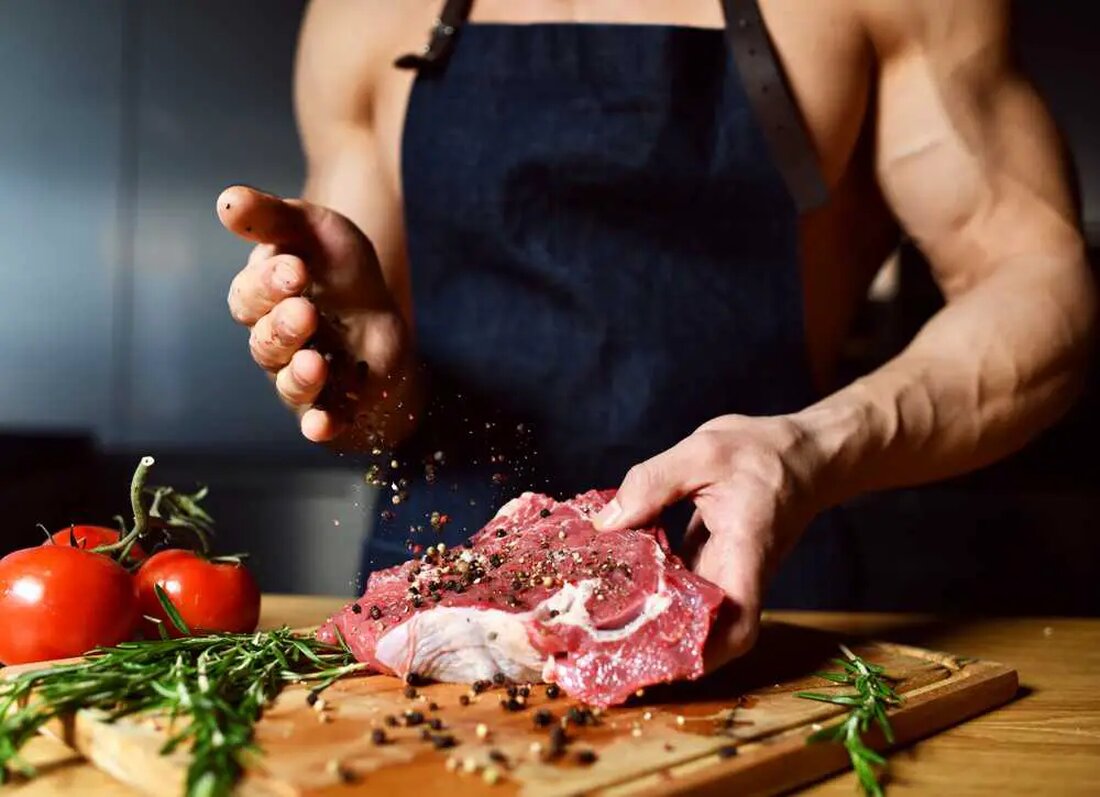Study suggests men may resist giving up meat due to perceived threat to masculinity
Masculinity has long been a powerful force in our society, shaping the way individuals approach various aspects of life. This complex construct, deeply rooted in cultural norms and expectations, influences the decision-making processes of men and women. From the foods we consume, such as the perceived connection between meat consumption and masculinity, to the career paths we choose and the way we communicate, traditional ideas of masculinity play an important role in defining our behavior, values and ideals. As society evolves, it is crucial to...

Study suggests men may resist giving up meat due to perceived threat to masculinity
Masculinity has long been a powerful force in our society, shaping the way individuals approach various aspects of life. This complex construct, deeply rooted in cultural norms and expectations, influences the decision-making processes of men and women. From the foods we consume, such as the perceived connection between meat consumption and masculinity, to the career paths we choose and the way we communicate, traditional ideas of masculinity play an important role in defining our behavior, values and ideals. As society evolves, it is crucial to critically examine the ways in which these entrenched gender norms influence our lives and to promote a more inclusive understanding of masculinity that allows for diverse expression and choice.
As we examine the influence of masculinity on decision-making, it is important to recognize how these ideas extend beyond our individual choices and influence broader societal trends. One such example can be found in the area of dietary habits, particularly meat consumption. Research has uncovered fascinating connections between perceptions of masculinity and resistance to a plant-based diet. Let's dive into a recent study that examines the connection between traditional ideas of masculinity and men's reluctance to give up meat consumption.
As global trends lean toward vegetarian and vegan diets, one demographic is facing greater challenges in making the transition: men. Men tend to consume more meat than women and show greater resistance to change in this regard. But what drives this resistance?
A recent study by researchers at the Australian National University postulates that traditional ideas of masculinity may be the answer. The study suggests that men may be hesitant to adopt a meat-free diet because eating meat makes them feel more “masculine,” while giving it up could threaten their sense of masculinity.
The study involved a large cohort of 4,897 Australians who completed an online survey about their attitudes towards meat consumption and self-identified gender. The researchers measured the extent to which men felt masculine and women felt feminine, and then analyzed whether this played a role in their attitudes toward meat.
The results showed that men who identified as more masculine were less likely to consider reducing their meat consumption and more likely to view meat as "necessary." For both genders, those with more typical self-perceptions were more likely to perceive meat as “nice” and “natural,” which may impact their willingness to consider vegetarianism or veganism.
These results are consistent with previous research suggesting that the mere fact of being male makes one less likely to cut out meat, but adherence to traditional ideas of masculinity could explain the disparity. Interestingly, women who viewed themselves as more feminine were more likely to consume meat.
The researchers argue that such factors should be taken into account in efforts to increase rates of vegetarianism and veganism in Australia, which are currently quite low. Meat alternatives could potentially use these insights in their marketing campaigns to appeal to those who are hesitant to change due to gender perceptions.
It's important to note that the study relied on self-reported surveys, which can be subject to bias, and that the correlations, although significant, were not particularly strong.
The researchers suggest several explanations for these observations. First, they suggest that men's self-rated gender typicality may predict behavior (e.g., actual reduction in meat consumption), but that both men and women may be influenced by prevailing gender norms when it comes to attitudes.
Second, adopting vegetarianism and veganism could be perceived as a violation of norms for both men and women, making those who adhere to traditional gender norms less likely to deviate from cultural norms regarding meat consumption. Finally, those who adhere to conventional gender norms may simply be more conservative and have more conservative views on meat consumption.
Whatever the cause, this intriguing connection deserves further investigation. If your decision to avoid meat is based on concerns about how it might affect your gender perception, rest assured that no one worth worrying about will judge you on that basis. In the end, you just eat whatever you feel like.
The research results were published in the journal Sex Roles.
Sources:
- (Link entfernt)

 Suche
Suche
 Mein Konto
Mein Konto
